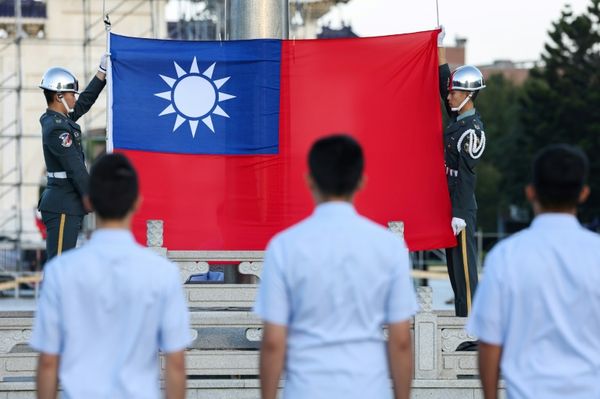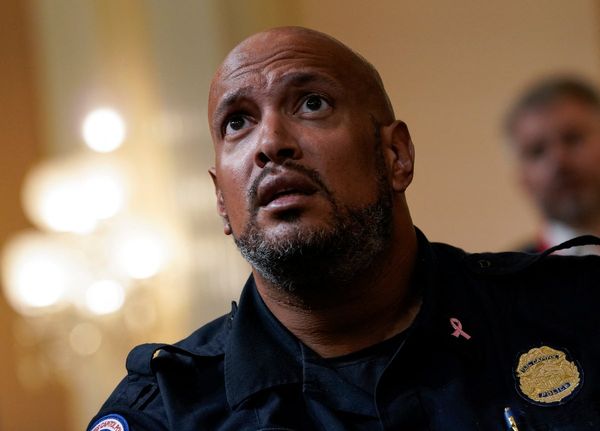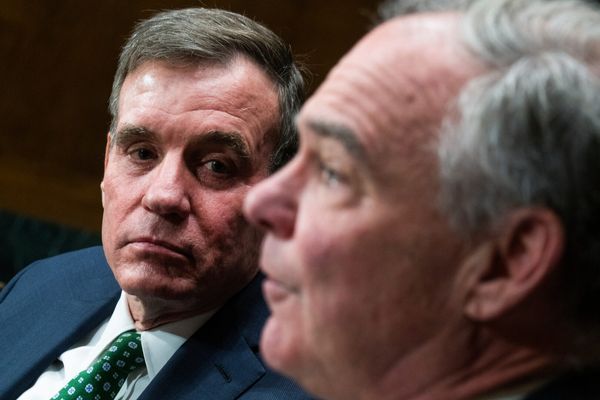
Bombarded by a Senate committee yesterday, along with her embattled chairman Richard Goyder, Qantas chief executive Vanessa Hudson is now facing industrial action at Perth subsidiary Network Aviation (NA), whose pilots on Thursday sent a letter to Qantas management advising that they would strike next Wednesday on October 4. It would be the first strike by pilots in the Qantas group since 1966.
The NA Qantas pilots voted almost unanimously to take action, with the strike including a range of work-to-rule actions that could ground the fleet of 15 A320s and 16 Fokker 100s mainly used for fly-in-fly-out (FIFO) mining services — which could upend the state’s lucrative mining sector — and an expanding oyster of commercial flights. Pilots at two more Qantas regional subsidiaries, Sunstate and Eastern Airlines, also voted for industrial action in three separate votes across the group.
The letter from Network Aviation looks to be more aggressive, demanding a better pay deal. Many pilots for the company are paid under award wages and are being offered only the standard 1.2% a year pay rise across six years, including two years of COVID pay freeze.
Pilots have also threatened strict work-to-rule action, in which employees perform their duties strictly to the letter of their contract, meaning no callouts, no duty changes, no tankering fuel from regional airports, and no flying planes with maintenance defects (on a fleet riddled with them), pilots told Crikey.
The industrial action comes as Hudson and Goyder continue to struggle to persuade shareholders, staff and customers that they can take the company in a better direction for its workers, passengers and shareholders. The latter are feeling the pain of the Alan Joyce model, with the share price tanking in recent months, closing at $5.18 yesterday as many brokers slashed forecasts.
Alan Joyce, the missing piece
The Senate inquiry was set up to find out why the Albanese government blocked Qatar Airways from doubling its flight capacity to Australia.
“We were surprised and shocked by the decision of the Australian government to reject our application for additional flights to Australia. Even more surprising was that the government gave us no reason for rejecting our application,” Qatar Airways’ senior vice-president of global sales Matt Raos told the inquiry yesterday.
Yet the committee failed to get to the bottom of that. It was hamstrung by the absence of former chief executive Joyce, who fled to Ireland on his last day at Qantas, and the head of its government relations group, Andrew McGinnes, who was conveniently “on holiday” in Tasmania. Perhaps McGinnes’ absence was due to his inept performance at Senate estimates, where he repeatedly groped for answers. Could it be that he is being set up as the latest fall guy for the company’s serial failures? (See also Andrew David, Sam Charmand.).
Qantas is guarding its submission to the government on Qatar last October like it’s the crown jewels, refusing to make it public and only reluctantly agreeing to hand over a redacted copy to the committee in confidence.
Hudson plodded along, constantly apologising for the company’s mistakes and returning to company talking points — which felt produced by cut-price AI — no matter the questions. She constantly took questions on notice and deflected any question on competition back to the government. Being utterly, but probably deliberately, unprepared appears to have become a design feature of Qantas Senate committee appearances.

“This is quite incredible. This is the whole quid pro quo and no-one came prepared to answer questions — what a surprise,” committee chair Senator Bridget McKenzie said, adding that there was a “level of disrespect” from Qantas leadership.
Goyder cut a mediocre figure, but his small-target strategy was effective. His determined belief in his own fabulousness continues to delay what many see as inevitable: “I would also argue that my history in business is one of high ethics … Right now, the major shareholders and the board feel I am the best person [for the job].”
Yet as one senator noted, there appears to be nobody inside the company that want him to stay. The usually timid Qantas pilots union, the Australian and International Pilots Association (AIPA), even issued a call for his head this week.
“The morale of Qantas pilots has never been lower. We have totally lost confidence in Goyder and his board,” the AIPA said in a letter to Hudson.
It remains clear that an outside chair and general board clear-out is the only path for a company reset. Goyder, however, told the committee he has the backing of 14 of the company’s top 20 shareholders — he did not name them, but was asked for a list by McKenzie, to be provided in confidence.
Questions but no answers
The now familiar filibuster pantomime of people paid millions a year not having answers to questions that a bright seven-year-old could have seen coming — taking them on notice or claiming that the absent McGinnes had the answers to — was frustratingly played out.
Despite being hindered on the Qatar issue, the committee did extract some fascinating — and depressing — information. A company jointly owned by Qantas and Virgin, which jointly control 95% of the Australian domestic market, manages critical landing slots at Sydney, Australia’s busiest airport. Former competitor tsar Rod Sims said that.
Hudson also revealed that Qatar holds a miserly 2% of international traffic in and out of Australia — so its proposed 200% increase would hardly “distort” the market, as Joyce had claimed. Yet she could not, somehow, say just what percentage of the Qantas/Emirates codeshare flights to Europe, the Middle East and Africa were flown by Qantas (hint: not a lot).
Hudson constantly talked up Qantas’ “passionate” employees, her favourite talking point from last week’s video to customers. Sure they were certainly passionate about wanting Joyce to leave and they now have the same view on Goyder. Many were passionate about selling their one-off share bonus this year as soon as it landed too.
Yet Hudson’s words have not yet been matched by her actions. As Queensland Greens Senator Penny Allman-Payne noted, companies let their employees know how much they are valued by how much they pay them. Less and less each year on this metric, handing its regular staff, pilots, engineers and cabin crew an across-the-board pay rise of just 1.2% a year over a six-year deal struck in the past 18 months. (Qantas engineers who threatened industrial action got a much better deal.)
So the pilot’s threat of industrial action next week is a big test for Hudson. Will she come to the table with a better offer? And if she does, will she do the same for the rest of the company’s workers, passionate as they are to be better paid and treated?
Is there any chance Qantas with its current leadership can regain loyalty and trust? Let us know by writing to letters@crikey.com.au. Please include your full name to be considered for publication. We reserve the right to edit for length and clarity.







